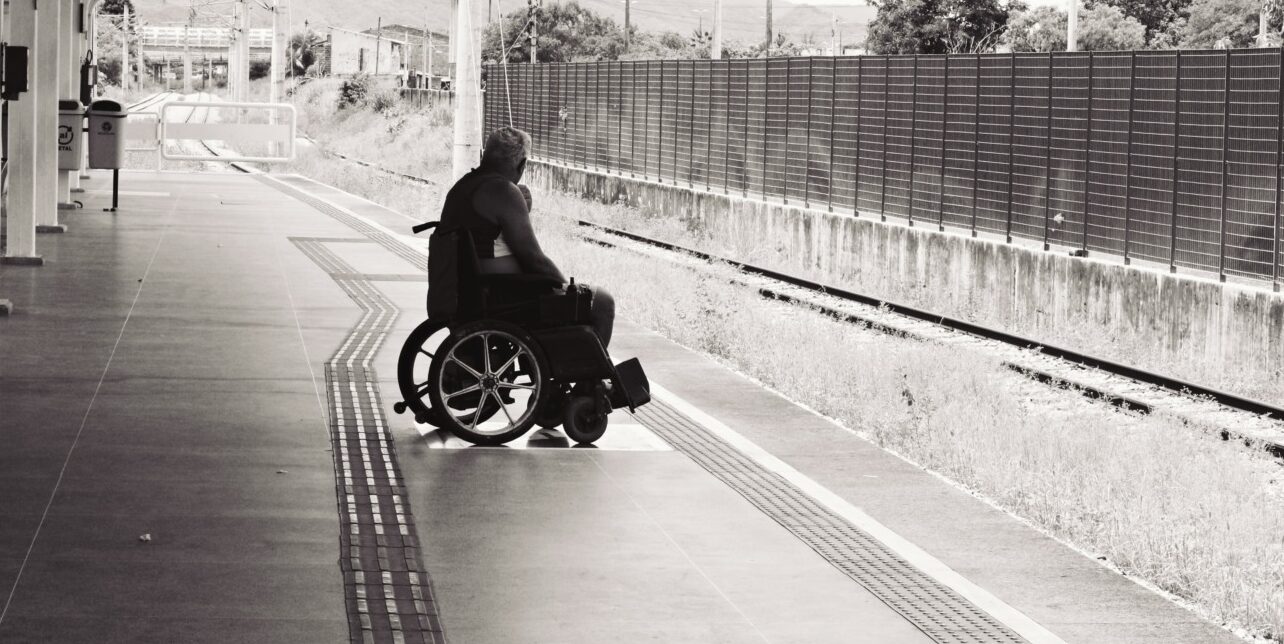Most inaccessible COP ever?
In case you hadn’t heard, Glasgow recently played host to the UN’s annual climate change summit, otherwise known as COP26. Leaders from all corners of the world gathered in Scotland to discuss key issues in the fight against global warming: from renewable energy, to environmental justice.
Or perhaps I should say leaders from nearly every corner of the world. Because while most politicians were inside the conference making significant announcements on topics like deforestation and private finance, one minister (Karine Elharrar) found herself excluded when the transport offered to her was not wheelchair-accessible.
This incident rightfully generated outrage in the international media, as well as creating yet another embarrassing situation for Prime Minister Boris Johnson. But it has also sparked deeper soul searching and a wider conversation around accessibility at the summit.
Issues have included a highly complex system for obtaining visas and meeting quarantine requirements
Although the Conference President Alok Sharma promised COP26 would be “the most inclusive ever”, the event has been plagued by accusations of elitism and exclusionary practices. The COP26 Coalition, a UK-based civil society group representing Indigenous movements, frontline communities, and trade unionists, estimates only around one third of the usual number of Global South representatives have been able to attend this year. They report that thousands of potential participants have been unable to convene in Scotland, due to a combination of preventable logistical challenges.
Issues have included a highly complex system for obtaining visas and meeting quarantine requirements, which has only been made worse by the government failing to fulfil its pledge of offering vaccines to all delegates. Combine this with the underlying hostile attitude of the UK Home Office towards Global South delegates, and you can understand why many have chosen to stay home.
These immigration issues have been exacerbated by the ‘accommodation crisis’ at the event, which has left hundreds excluded by the massively inflated costs for hotels and Airbnbs. Official delegations have been asked to pay nearly £900 a night for rooms, where the rate is usually as low as £50, while rental properties have been marketed for as much as £20,000 for the fortnight. It goes without saying that this is way beyond the price range of your average environmental campaigner, and has led to a waiting list of nearly 3,000 people on the Homestay Network, a non-profit alternative to Airbnb established by activists.
For those lucky enough to make it to Glasgow, difficulties with accessing negotiations continue to restrict their participation in the event. Observers act as the unofficial watchdogs of COP, representing hundreds of environmental, climate justice, Indigenous, academic, and women’s rights organisations. But this year, there have been heavy restrictions on their access to talks, with just four observers allowed into negotiations as the summit opened last Monday. Even virtual participation has been problematic, with proceeding streams only available to registered participants in Glasgow.
If the voices of those on the frontlines of global warming aren’t being included in negotiations, how do we justify supporting the outcomes?
These wide-ranging constraints on the attendance and participation of civil society groups and nations from the Global South have led to an “overwhelmingly white and rich COP”. And this has real consequences for the potential outcomes of the summit. Those that are being excluded are the ones most affected by climate change, such as activists from the Global South, and yet they will get no say this year in how it should be tackled and adapted to.
Not only is this unjust, it also calls into question the very legitimacy of the decisions made at the conference: if the voices of those on the frontlines of global warming aren’t being included in negotiations, how do we justify supporting the outcomes? And if our leaders are incapable of organising a transparent and equitable conference, how can we trust them with enacting the fair and just transition the world so desperately needs?
This year, COP26 has perhaps left us without the answers we were hoping for to these questions. Instead, it has given us the added job of overcoming the harm of the “most elite and exclusionary COP ever held”.

Comments